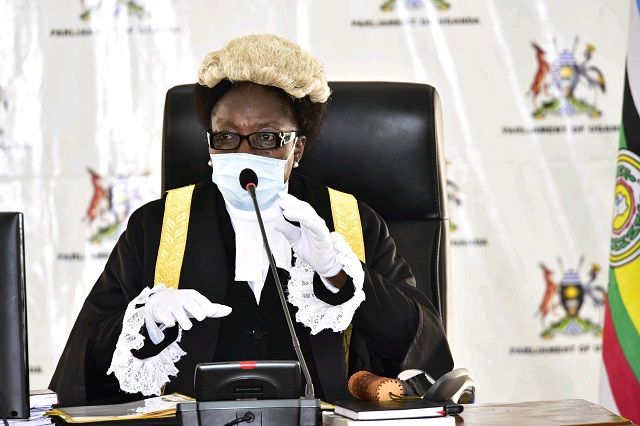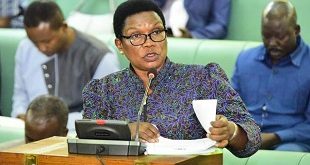
Kampala, Uganda | THE INDEPENDENT | The government has proposed to have an omnibus law that will facilitate the merger and disbandment of agencies created by Acts of Parliament and those that are constitutional.
This is carried in a statement by the Minister of State for Public Service, David Karubanga presented on the floor of parliament regarding the modalities for effecting the mergers of selected government agencies, yet most of them are established by Acts of Parliament.
The Cabinet on February 22 approved recommendations for the rationalization of government Agencies, Commissions, Authorities, public expenditure and a road map for the implementation process over two years to facilitate efficient and effective service delivery.
“The overall objective for rationalization of agencies and public expenditure is to eliminate structural ambiguities, functional duplication, overlaps, wasteful expenditure and realize resultant short term and long term savings which would be utilized to provide other critical services in line with the approved implementation road map,” Karubanga told parliament.
The Minister said that this process will have legal, administrative and financial implications which include amending laws especially for the agencies that were created by Acts of Parliament and those that are constitutional.
“And we propose to have an omnibus law and policy that will facilitate rationalization and a compensation plan for the boarded off staff, recruitment plan for the recommended structures, harmonized terms and conditions of service, a report on assets and liabilities for the affected entities and an administrative reform model for the public service of Uganda for the next ten years,” said Karubanga.
He said that the projected funds that will be spent during the process in the short term are 988.12 billion Shillings and that the cost-saving items considered are operational costs including rent and the entire development budget.
Karubanga also said that the exercise will require a critical study, analysis of the mandates, roles, functions, workload and structures of 18 government ministries and offices and 97 agencies with a view of effecting mergers, mainstreaming, functional transfers to support improved service delivery.
The Minister adds that the reform will also develop a change management strategy to facilitate a smooth transition and undertaking job evaluation aimed at harmonization of pay across the service and developing an administrative reform model for government to coordinate public service reforms.
He adds that government will also under job evaluation facilitate the design of harmonized salary structure of the entire public service and also identify major dysfunctional, operational and management systems in Ministries, Departments and Agencies -MDAs to facilitate improved service delivery.
He reported that a secretariat that has been set up to coordinate the merger implementation process in two years has come out with a detailed plan in whose first phase (the financial year 2021/2022) will focus on a comprehensive review of 18 government ministries and 97 agencies which are affected by the merger, mainstreaming and transfer of functions.
Parliament also learnt that the second phase (the financial year 2022/2023) will focus on the remaining 6 government offices, ministries and 61 agencies which were recommended for retention. Karubanga says that these would require institutional review to enable them adequately respond to the current service delivery demand.
The Speaker Rebecca Kadaga advised Parliament’s Committee on Public Service and Local Government to follow the process and brief the House from time to time.
The plan to merge agencies came into being after the Internal Security Organization –ISO produced a report responding to a demand by President Yoweri Museveni for information regarding the expenditure of ministries and agencies.
The report revealed that a lot of money was being spent on duplication or overlapping functions of ministries and agencies. ISO then recommended reforms of merging agencies and disbanding some to cut on wasteful expenditure. The agencies in question account for 37 percent of the government’s wage bill and scrapping them would save 1 trillion Shillings a year in salaries.
*******
URN
 The Independent Uganda: You get the Truth we Pay the Price
The Independent Uganda: You get the Truth we Pay the Price


